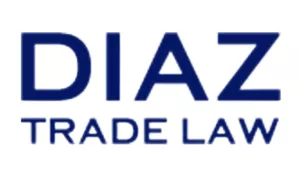Government funding will lapse at midnight on Tuesday, September 30, absent Congressional action. With a number of contentious issues still at play, including spending limits, immigration policy, and healthcare funding, some say a shutdown is looking more and more likely.
What makes this potential shutdown different from previous lapses in funding is the lack of contingency plans within the relevant agencies. The White House's Agency Contingency Plan page is blank.
Until agencies update their guidance, we can only look to previous contingency plans.
Below is a breakdown of previously issued agency guidance.
U.S. Customs and Border Protection
According to the Department of Homeland Security's most recent contingency plan (March 2025) cargo inspection functions at ports of entry will remain active during a shutdown. However, certain activities, such as training and auditing, are not required to be carried out during this time. In addition, back-office support positions are not likely to be deemed essential and will be furloughed. Refunds, audits, ruling requests, etc., would be delayed until the shutdown ends.
There remains uncertainty around which specific offices will be deemed essential. For example, Forced Labor Communications may be furloughed, resulting in delays in reviewing the Enforce and Protect Act (EAPA) and Uyghur Forced Labor Prevention Act (UFLPA) allegations.
U.S. Department of Commerce
According to the Department of Commerce's most recent contingency plan (September 2023), some International Trade Administration (ITA) activities, such as trade policy negotiations, will be considered necessary for national security and will operate during a shutdown. However, many other activities are not likely to be deemed essential. For example, in the last shutdown in 2019, the ITA and the Bureau of Industry and Security operated with a significantly reduced staff and budget. All antidumping and countervailing duty (AD/CVD) investigations and administrative proceedings will stop.
U.S. Department of State
According to the department's most recent contingency plan (August 2023), many administrative functions will be subject to furloughs, which will result in a delay in licensing and other regulatory functions.
Food and Drug Administration (FDA)
Unlike many other agencies that are funded solely by government appropriations, the majority of FDA staff is funded by other revenue (agency fees) and is therefore exempt from a government shutdown. According to the agency's most recent contingency plan (December 2023), 77% of FDA staff will be retained in the event of a lapse of appropriation. Entry reviews and exams will continue, as well as high-risk investigations. However, importers should expect delays in the processing of import transactions.
While many agencies and employees critical to international trade will not be subject to furloughs during a shutdown, companies should still expect delays and disruptions. Diaz Trade Law will continue to monitor developments and provide updates when they become available.
The content of this article is intended to provide a general guide to the subject matter. Specialist advice should be sought about your specific circumstances.
[View Source]

